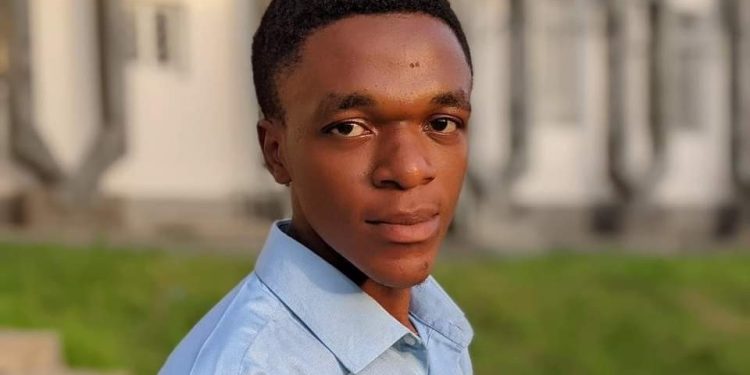Guy Bruno Maimo, a third-year student journalist at the department of journalism and mass communication at the University of Buea, was arrested and held without charge. He went to cover a women’s protest on Thursday, October 24, 2024, and never returned.
It was not until Monday, October 28, that his family and friends, who had launched a search for him, discovered he had been detained at the South West Gendarmerie headquarters, popularly known as Legion.
Bruno, who corresponds for weekly newspaper Volcanic Times, had been sent by his editor and publisher, Chief Embola Charles, to cover the protest, MMI learned.
The protest involved dozens of women from Maumu, a village in Buea where Embola was recently crowned Chief.
The protesting women were demanding the release of their husbands and children arrested during a mass arrest in the community earlier this month.
They had marched with peace plants along Buea’s main boulevard before forming a human barricade across the road in front of the gendarmerie headquarters.
Legion, as it is called, is where several people arbitrarily arrest in Buea and its environs are incarcerated.
Like its national headquarters SED in Yaoude, Legion Buea has been accused of torturing civilians, especially people arrested in connection with the Anglophone Crisis.
The protesting Maumu women believed their relatives were detained there.
Crackdown on The Media
The young Guy Bruno Maimo was among a few print and audiovisual media reporters who came to cover the protest.
Based on MMI’s earlier report, the reporters were met with hostility from parading gendarmes, who violently chased them away.
Unfortunately, Bruno was cornered and arrested, apparently without the knowledge of other reporters. A few protesters were reportedly arrested as well.
The protests subsided after the Divisional Officer of Buea, Abba Abdurahman, intervened and sweet-talked the women, promising to examine their grievances.
But Guy Bruno Maimo, a non-participant, became a victim.
His neighbours and classmates said his unusual absence over the past days prompted them to notify his relatives, who began combing through police and gendarmerie stations in Buea looking for him.
With the help of Embola Charles, they found the student journalist at Legion on Monday and began negotiating for his release, despite what was clearly an unlawful arrest.
He was freed on Tuesday evening thanks to timely intervention from various stakeholders, including the Cameroon Association of English-speaking Journalists (CAMASEJ). The young man spent five nights at the Gendarmerie headquarters.
MMI learnt the only charge the gendarmes placed on him is that he was covering the protest without authorization.
In Cameroon, covering protests or any event perceived to be opposing the government could get journalists arrested, killed or brutalized.
Although the country’s laws guarantee freedom of the press, the contrary prevails in reality, as journalists are constantly being harassed, kidnapped, and tortured by security forces.



